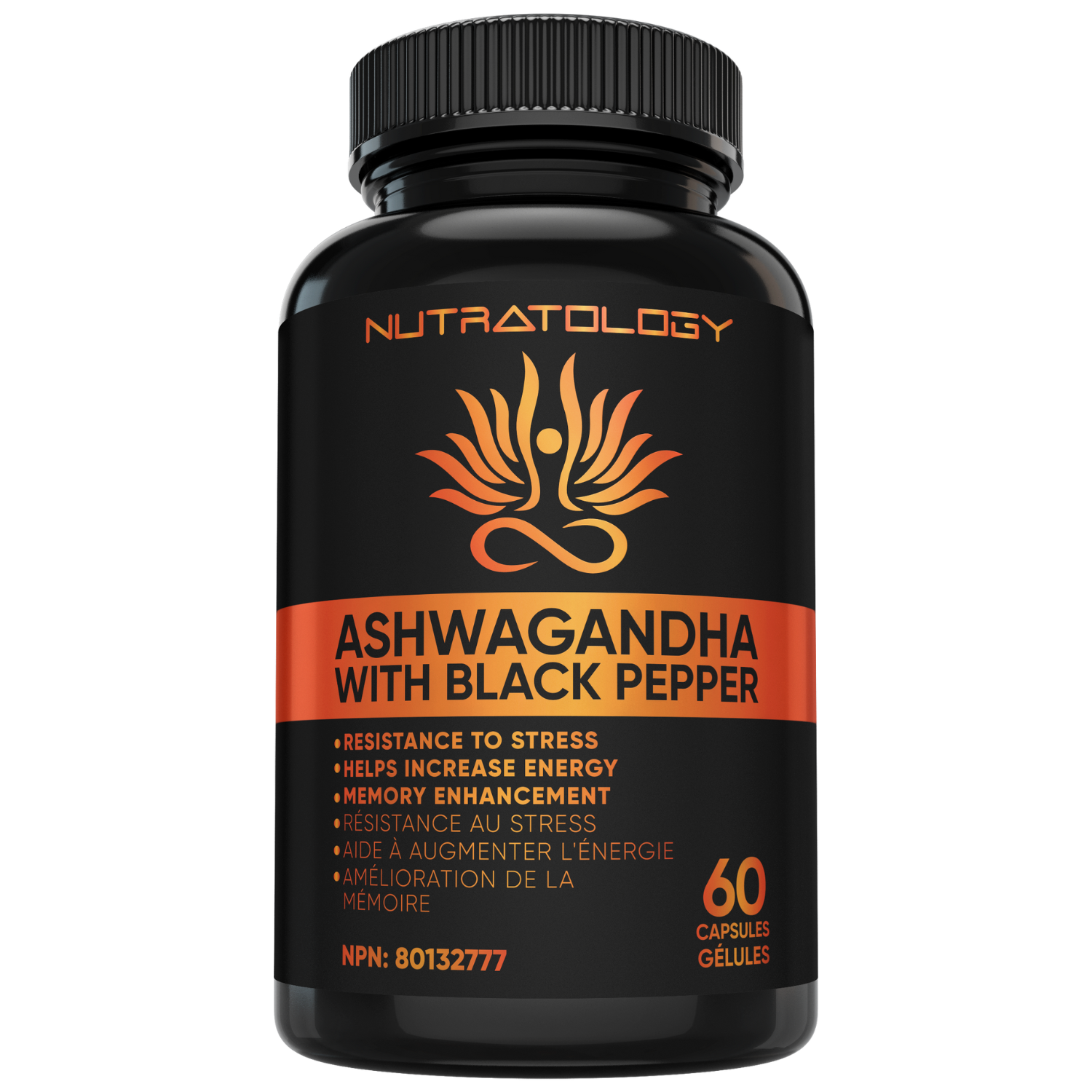
Magnesium is a superstar mineral, involved in over 300 essential bodily functions. From regulating blood sugar to supporting strong bones and muscles, it plays a critical role in keeping you healthy. It's involved in functions like muscle and nerve function, allowing nerves to send messages and muscles to respond; energy production that helps convert food into usable energy, keeping you going throughout the day, blood sugar control, supporting insulin function, which helps regulate blood sugar levels, and bone health, helping build and maintain bone density.
But did you know that not all magnesium supplements are created equal?
Magnesium bisglycinate is a type of magnesium supplement known for its high absorption rate and gentle digestive effects. Unlike some other magnesium forms, it doesn't require high stomach acid for the body to take it in. This makes it a good choice for people with digestive issues or those who don't absorb nutrients well.
Not all magnesium supplements are created equal. Magnesium bisglycinate is a type of magnesium that boasts a special advantage: high bioavailability. This means your body can easily absorb it and put it to good use.
Think of it this way: some magnesium supplements are like trying to swallow a pebble whole – your body struggles to take what it needs. Magnesium bisglycinate, on the other hand, is more like a delicious, easily digestible morsel – your body gets the magnesium it craves.
What are the benefits of magnesium bisglycinate?
Ever toss and turn at night, or wake up with a charlie horse cramping your leg? You might be magnesium deficient! This mineral plays a starring role in many bodily functions, and magnesium bisglycinate is a superstar form known for its gentleness and effectiveness. Let's delve into what magnesium bisglycinate is best for:
-
Champion of relaxation and sleep: Feeling stressed or wired? Magnesium bisglycinate can be your knight in shining armor. It helps regulate the nervous system, promoting relaxation and easing muscle tension. This can naturally lead to better quality sleep, leaving you feeling refreshed and ready to tackle the day.
-
Kicking out leg cramps: If you're tired of waking up to leg cramps, magnesium bisglycinate might be your new best friend. Studies show it's particularly effective in reducing pregnancy-related leg cramps, but there's also some evidence it may help with muscle tension and soreness in general.
- Building strong bones: Magnesium is a superhero for your bones! It works alongside calcium to build and maintain bone density. This can be especially helpful for preventing osteoporosis as we age.
Why is magnesium bisglycinate special?
There are two main reasons why magnesium bisglycinate stands out from the crowd:
-
High bioavailability: Unlike some other forms of magnesium, like magnesium oxide, bisglycinate doesn't require high stomach acid for absorption. This makes it a great choice for people with low stomach acid or digestive issues.
- Gentle on the stomach: Because it's already bound to glycine, magnesium bisglycinate is less likely to cause laxative effects that some other magnesium supplements can bring on.
What causes magnesium deficiency?
Most people with a healthy diet get enough magnesium. But some factors can up your risk of deficiency:
-
Dietary shortfalls: Processed foods and refined grains are often low in magnesium. People who don't eat a lot of fruits, vegetables, nuts, and whole grains may be more susceptible.
-
Digestive issues: Conditions like Crohn's disease or chronic diarrhea can hinder magnesium absorption.
-
Certain medications: Diuretics and some antibiotics can increase magnesium loss through urine.
- Medical conditions: Diabetes, alcoholism, and kidney problems can also affect magnesium levels.
Natural diet vs. Magnesium bisglycinate: Treating a deficiency
When it comes to correcting a magnesium deficiency, you have two main options: dietary changes and magnesium supplements like bisglycinate. Here's a breakdown of each approach:
Natural Diet
Pros:
- Safe and natural way to increase magnesium intake.
- Rich in additional vitamins, minerals, and fiber.
-
Sustainable long-term solution.
Cons:
- Requires dietary changes and commitment to magnesium-rich foods.
- Absorption rate can vary depending on food sources and individual digestion.
- May not be enough for severe deficiencies or people with absorption issues
Magnesium bisglycinate supplement
- Pros:
- Highly bioavailable form, meaning your body absorbs it well.
- Gentler on the digestive system compared to other magnesium types (like oxide).
- Can be a faster way to correct a deficiency.
- Cons:
- Supplement; doesn't offer the additional nutrients of whole foods.
- Can be more expensive than dietary changes.
- Potential for taking too much, leading to side effects like diarrhea.
What are the sources of magnesium glycinate?
Magnesium bisglycinate itself isn't something you'll find in nature. It's a specific type of magnesium supplement created by combining magnesium with glycine, an amino acid.
However, magnesium itself is abundant in many delicious foods! If you're looking to up your magnesium intake naturally, here are some excellent sources to consider:
-
Leafy green vegetables: Load up on your spinach, kale, and Swiss chard. These leafy powerhouses are packed with magnesium.
-
Nuts, seeds, and legumes: Almonds, cashews, pumpkin seeds, black beans, and lentils are all magnesium superstars.
-
Whole grains: Brown rice, quinoa, and oats are tasty ways to boost your magnesium intake.
- Fish: Halibut and other fish varieties are good sources of magnesium.
Other benefits of magnesium bisglycinate
Beyond relaxation and sleep
While muscle relaxation and sleep are some of the most studied benefits of magnesium bisglycinate, research suggests it might also play a role in:
-
Blood Sugar Management: Some studies indicate magnesium may improve insulin sensitivity and blood sugar control.
-
Anxiety Relief: Magnesium deficiency has been linked to anxiety. While more research is needed, some studies suggest magnesium bisglycinate might help with anxiety symptoms.
- Premenstrual Syndrome (PMS) Relief: Studies suggest magnesium may help alleviate some PMS symptoms like cramps, bloating, and mood swings.
While dietary sources are fantastic, supplements can be helpful if you have trouble meeting your daily needs or have specific health concerns. This is where magnesium bisglycinate comes in, offering a well-absorbed and gentle option.
Choosing the Right Approach:
-
Mild deficiency: If your deficiency is mild, focusing on a magnesium-rich diet is a great first step. Leafy greens, nuts, seeds, and whole grains are excellent options.
-
Severe deficiency or absorption issues: For severe deficiencies or those with digestive issues that hinder magnesium absorption, magnesium bisglycinate can be a faster and more effective solution.
- Combined approach: Many people find success with a combination of dietary changes and a magnesium bisglycinate supplement.
Consulting a Doctor:
It's crucial to consult your doctor before starting any supplements, especially if you have an underlying health condition or take medications. They can assess your magnesium levels, recommend a suitable dosage, and ensure it won't interact with any medications you're taking.
Who cannot take magnesium bisglycinate?
While magnesium bisglycinate is generally well-tolerated, there are some situations where it might not be recommended. Here's who should consult a doctor before taking it:
-
People with kidney issues: Since kidneys filter out magnesium, those with impaired kidney function might have trouble eliminating excess amounts. High magnesium levels can lead to toxicity.
- People on certain medications: Magnesium can interact with some medications, including antibiotics, diuretics, and some heart medications. It's important to check with your doctor to avoid potential complications.
Effectiveness of magnesium bisglycinate in reducing pregnancy-induced leg cramps
Muscle Relaxation and Cramp Relief
Leg cramps at night during pregnancy are a common struggle for many expecting mothers. Luckily, research suggests magnesium bisglycinate might be a champion in this fight!
A study published in the National Institutes of Health's database showed a significant reduction in both the frequency and intensity of leg cramps in pregnant women who took magnesium bisglycinate compared to a placebo. This is particularly good news because pregnancy increases your magnesium needs, and some women may not get enough through diet alone.
Conclusion
Magnesium bisglycinate offers a gentle and well-absorbed form of magnesium that can contribute to a variety of health benefits. If you're looking to optimize your magnesium intake and support your overall well-being, it might be a great option to explore.
When choosing a magnesium bisglycinate supplement, look for high-quality brands that prioritize purity and independent testing. This ensures you're getting the most out of your magnesium intake.
At Nutratology, we use a unique chelation process to enhance the bioavailability of our magnesium bisglycinate. Our capsules are also vegan-friendly and free from common allergens or fillers.

 Log in
Log in
